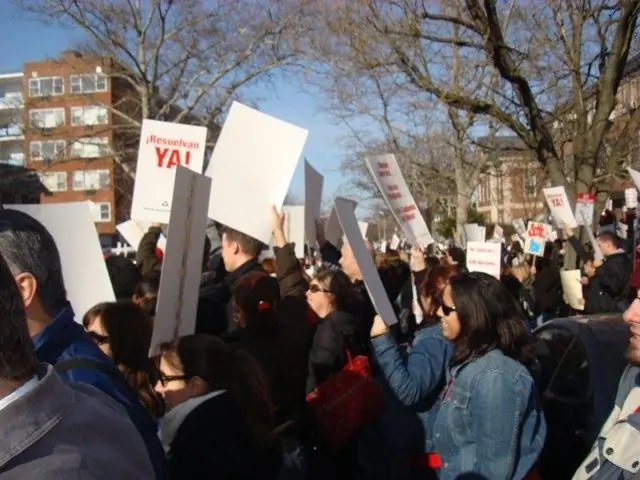- Author Antonio Harrison [email protected].
- Public 2023-12-16 07:44.
- Last modified 2025-01-22 21:44.
One of the most accessible and widespread ways of expressing one's civic position is participation in rallies. In addition to the protesters, the police are also in the square where the action is taking place. In order not to be in the department in connection with some kind of violation, or just getting under the arm, you need to be able to communicate with the police at a rally.

It is necessary
- - identity document;
- - copy of the passport.
Instructions
Step 1
When planning to go to the rally, do not forget to bring your identity document with you. It can be a student's, driver's license, military ID. It would also be nice to make a copy of your passport and have it certified by a notary. If the law enforcement officers want to check your documents and start asking where is the original, feel free to answer that according to clause 17 of the Regulations on the passport of a citizen of the Russian Federation, he is obliged to carefully keep the passport, so you keep it at home.
Step 2
Initially, treat the policemen standing in the square kindly, because they came to guard you. You can try to make contact, exchange a couple of jokes, but if the police officer is not in the mood to enter into a conversation with you, just move away from him without becoming annoying. Do not bring big bags with you to the rally, do not make sudden movements, do not try to "jokingly" pull a pistol out of your pocket and shoot someone with your index finger, and the police will not take an interest in you. Of course, you should not come to the rally in a state of alcoholic or drug intoxication.
Step 3
If riots nevertheless occurred, and the police moved to active actions, it is better not to resist, otherwise you will be tried for disobeying the lawful order of the police officer. Go to the bus voluntarily, without showing aggression or fear towards the people who detained you.
Step 4
Once at the police station, tell the police that you are entitled to one call. This norm appeared in the law recently, so do not hesitate to remind the police officers about it. When you get to the phone, call not your wife or mother, but the person who can help you - explain your rights, hire a lawyer, and drive up to the ROVD himself. In a conversation with those who detained you, remember that it is their task - to prove your guilt, and not yours - to justify yourself. If you are polite, law-abiding and know your rights, your communication with the police will not last long.






